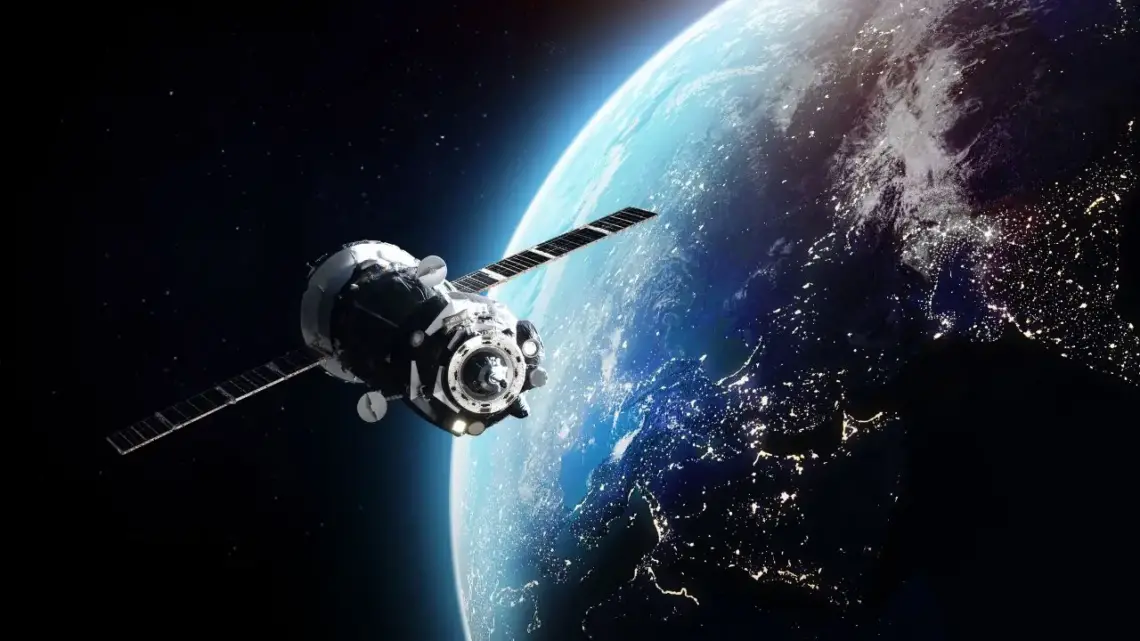
Space may be the final frontier, but it’s also one filled with opportunity for Kanata North’s tech companies.
That was the message from Ian McLeod, vice-president of corporate development at MDA, at this month’s Tech Tuesday, hosted by Wesley Clover.
In his presentation to a packed crowd of more than 350 people at the Marshes Golf Club, McLeod highlighted the significant role Canada has played – and continues to play in the space industry.
 McLeod said space technology has become a vital part of our lives, from GPS navigation to satellite broadcasting, and its importance will only increase as we aim to connect the world and tackle global challenges such as climate change.
McLeod said space technology has become a vital part of our lives, from GPS navigation to satellite broadcasting, and its importance will only increase as we aim to connect the world and tackle global challenges such as climate change.
“You should care because this will ultimately touch you, and affect your lives,” he said. “Space is connecting the world.”
“If you are using Google Maps and you look at the satellite image to see the layout of this area, that’s another application of space. If you’re doing banking transactions that require very precise timing, that’s an application of space,” McLeod said, as he listed how we rely on innovation in space every day.
Canada as a space leader
It was a long, long time ago but not in a galaxy far, far away that Canada first played a role in space technology, starting with the launch of Alouette 1 in 1962. This act made Canada the third country to have its own satellite in space. Since then, Canada has been a key player in the space industry, with the development of the Canadarm, which was the first robotics used for orbit satellite services, and the ongoing development of Canadarm Three, which will be used for servicing the Lunar Gateway.
Since that first foray into space innovation in 1962, the cost of launching satellites has gone down dramatically, and is on track to be merely $100/kg. This means that companies are more likely to experiment in space, McLeod said. He added there is also much discussion about how to deal with major space debris fields, which require regulation.
McLeod highlighted that Canada’s space industry has not only contributed to exploration but has also made significant strides in commercial space activities. Companies like Montreal-based GHGSat have developed satellites that can measure greenhouse gases, and NorthStar is working on launching a constellation of satellites to keep track of objects in space.
“Radar satellites have the ability to monitor the Arctic and see what’s going on with the ice caps, how large they are. That’s all measured from space,” McLeod added.
Where opportunity lies for space tech
The commercialization of space activities presents significant opportunities for Canadian innovation. MDA, for exmaple, has a satellite systems group that is building the next generation of direct-to-device innovation for Apple.
Apple’s direct device technology is currently designed for emergencies, said McLeod.
“The big vision is that you don’t care where cell towers are anymore, because you can just point your phone to the sky.”
MDA’s GeoIntelligence group is also focused on radar imaging. They are developing the next generation of radar satellites, which McLeod said will be a true commercial mission developed entirely by MDA.
Meanwhile, the Space Operations group is working on Canadarm Three for the Lunar Gateway and is planning to commercialize the technology.
McLeod noted in his presentation that the Canadian government is also recognizing the importance of the space industry and is investing in its growth. The Horizons conference to be hosted this May in Ottawa will bring together industry and government to discuss future plans, sparking even more collaboration and discussion in the sector, he added.
Speaking on the growth in the sector, McLeod wrapped up, noting that Space Canada, the industry association for the Canadian space sector – and which MDA was one of nine founding members in 2022 – now has more than 50 members all working to further Canada’s presence as innovator to the stars.
Written by Melanie Coulson

